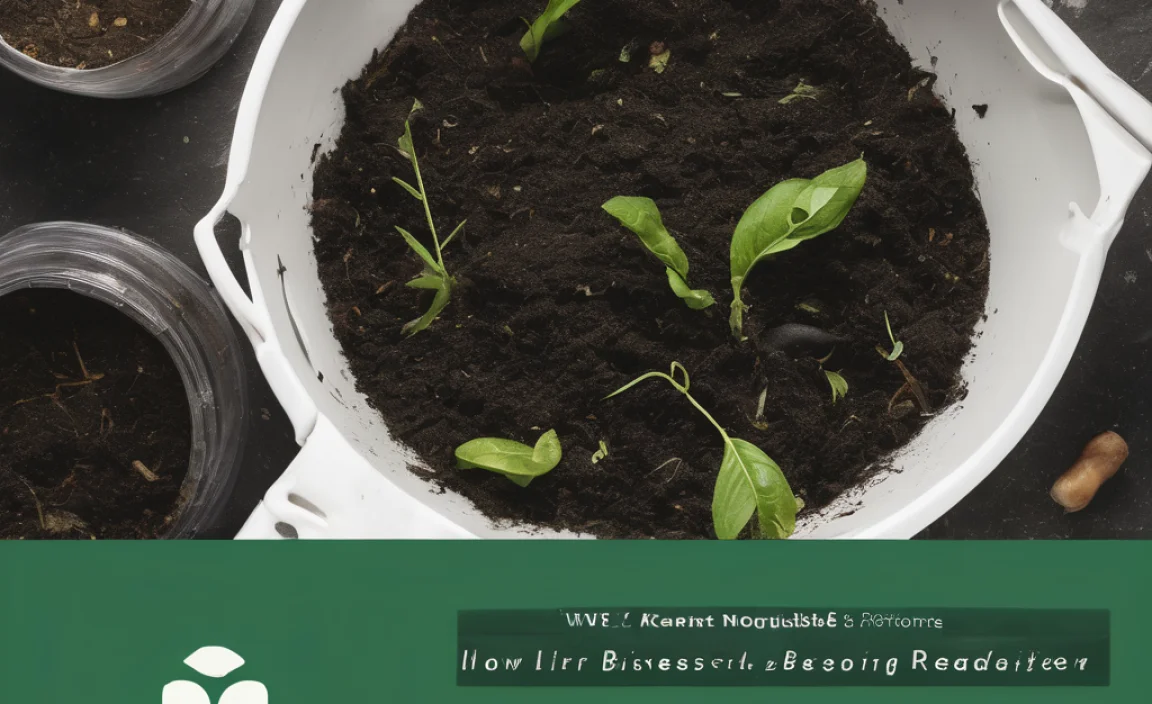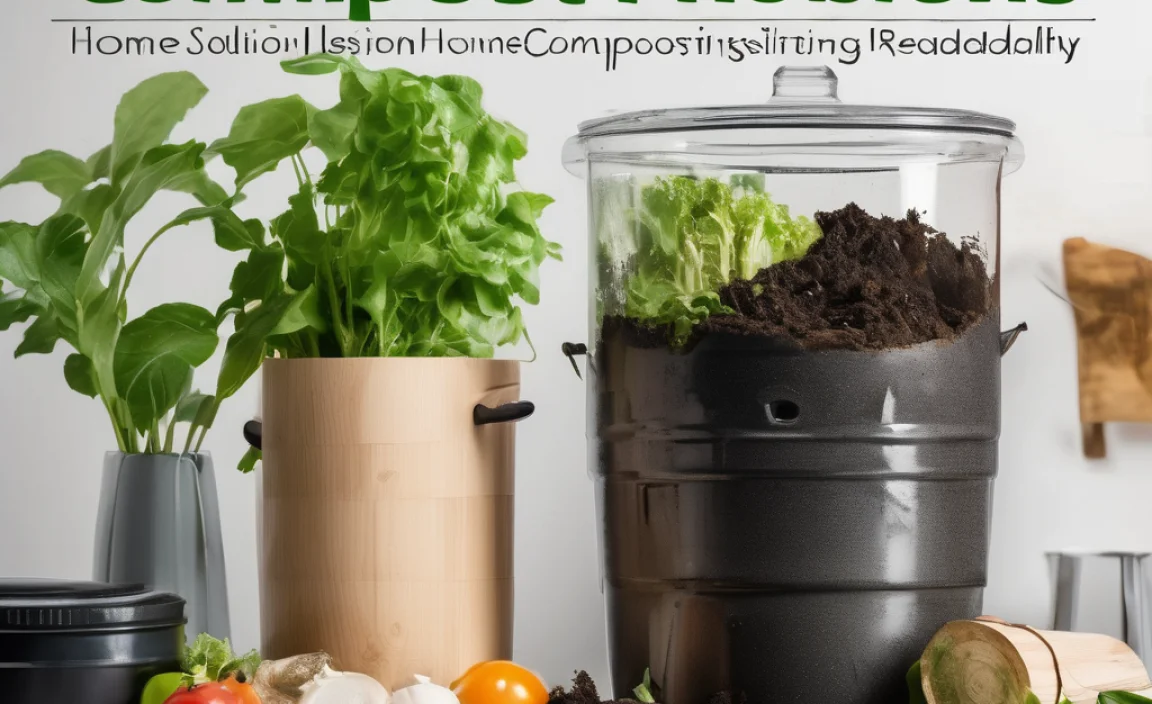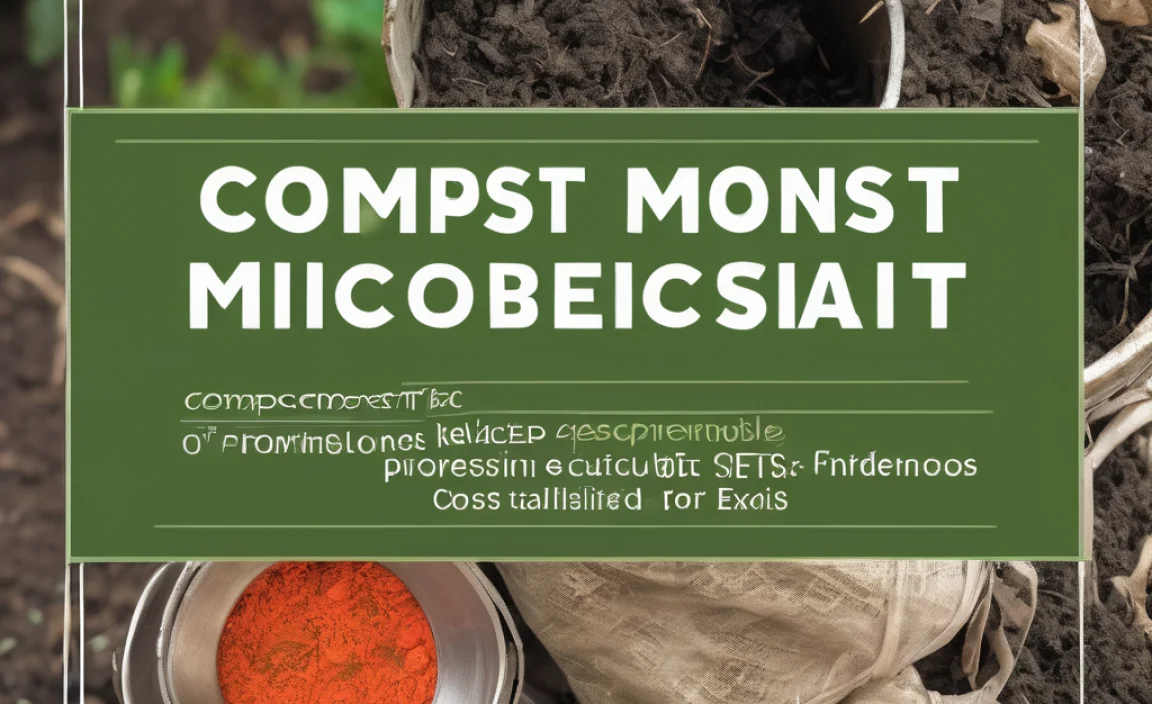Have you ever walked by a compost pile and thought, “Wow, that compost smells bad!”? You’re not alone. Many people feel the same way when they first start composting. But did you know there’s a reason behind it? Composting can be smelly when things aren’t quite right. Let’s dive into why compost smells bad and how to fix it.
Key Takeaways
- Compost should smell earthy, not bad.
- Too much moisture makes compost smell bad.
- Balance greens and browns to reduce odor.
- Proper airflow is key to preventing bad smells.
- Fixing smell can make composting easier.
Why Compost Smells Bad
When starting a compost pile, it should smell earthy and fresh. If your compost smells bad, something has gone wrong. This usually happens when the balance of materials is off. Compost needs a good mix of “greens” and “browns.” Greens are items like veggie scraps and grass clippings. Browns are things like dried leaves and twigs. If you have too many greens, the compost can smell like rotten eggs.
- Balance greens and browns in your compost.
- Too many greens can cause bad smells.
- Compost should have a fresh, earthy scent.
- Rotten egg smell means too many greens.
- Avoid adding meats and oils to compost.
To fix smelly compost, check the balance of materials. Add more browns if needed. Also, make sure the compost pile isn’t too wet. If it’s soggy, it will smell bad. A good mix and proper moisture help keep your compost smelling fresh.
Fun Fact or Stats: Did you know worms help reduce compost smells? They eat kitchen scraps and produce rich soil!
The Role of Moisture in Composting
Moisture plays a big role in how your compost smells. Too much water can make compost smell bad. Imagine a sponge full of water; it drips and stays wet. Compost should be like a damp sponge, not dripping. A soggy compost pile blocks air. Lack of air makes bad smells. Why? Because the good microbes can’t breathe. These microbes help break down the compost. They need air to work properly.
Greens and Browns: The Perfect Mix
Have you ever baked a cake without the right ingredients? It doesn’t turn out well. The same goes for compost. Greens and browns must be balanced. Greens add nitrogen, while browns give carbon. Too much of one can make the compost smell bad. Imagine a salad with too much dressing. It’s soggy and not tasty. Compost needs balance to avoid unpleasant odors.
Airflow is Crucial for Composting
Airflow is important for keeping compost healthy. Without it, compost smells bad. Why is air important? Good air prevents bad bacteria from growing. It also helps good microbes break down waste. You can increase airflow by turning the compost pile. This simple action helps keep the compost smelling nice. Imagine opening a window in a stuffy room. Fresh air comes in, making it smell better.
How to Fix Smelly Compost
If your compost smells bad, don’t worry. There are ways to fix it. First, check the balance of greens and browns. Add more browns if needed. Next, check the moisture level. Compost should be damp, not wet. You can also try turning the pile. This helps air circulate, reducing smells. Finally, avoid adding bad-smelling items like meat or dairy. These can make smells worse.
- Check greens and browns balance.
- Avoid adding meat and dairy.
- Turn the pile for better airflow.
- Keep compost damp, not wet.
- Add more browns to reduce smell.
Fixing smelly compost is not hard. With a few changes, you can have fresh, earthy-smelling compost. Remember, balance and airflow are key. If you fix these, your compost will smell much better.
Fun Fact or Stats: Composting can reduce kitchen waste by up to 30%! That’s a big impact!
Signs of a Healthy Compost Pile
How can you tell if your compost is healthy? Look for these signs. First, it should have a pleasant, earthy smell. No bad odors mean balance is right. Second, it should feel warm inside. This means microbes are working. Third, the compost should be dark and crumbly. This shows it’s breaking down well. Finally, you might see worms. They are good for compost! They help speed up the process.
Common Composting Mistakes
Many new composters make mistakes. These can make compost smell bad. One mistake is adding too much green material. Another is not turning the pile often. Some people add meat and oils, which attract pests. Others forget to check moisture levels. These mistakes are easy to fix. With a little care, your compost can smell great! Remember, balance and airflow are key.
The Benefits of Good Compost
Good compost has many benefits. It helps plants grow strong. It reduces waste in landfills. It can also save you money on fertilizers. How does compost do all this? It adds nutrients to the soil. Plants use these nutrients to grow. Composting also recycles waste. Less waste means less trash. This is good for the planet and your garden. With good compost, everyone wins!
Conclusion
Composting is a great way to recycle waste. But sometimes, compost smells bad. This usually means something is off. By fixing the balance of greens and browns, you can reduce smells. Proper moisture and airflow help too. With these tips, your compost can smell fresh and help your garden grow!
FAQs
Question: Why does my compost smell bad?
Answer: Compost smells bad when the balance of materials is off. Too many greens or too much moisture can cause this. Make sure to balance greens with browns and check moisture levels.
Question: How can I fix smelly compost?
Answer: To fix smelly compost, balance greens and browns. Turn the pile for better air circulation. Check the moisture level; it should be damp, not wet. Avoid adding meats and dairy to keep smells away.
Question: What materials cause compost to smell bad?
Answer: Materials like meat, dairy, and oils can make compost smell bad. Too many greens, such as vegetable scraps, can also cause bad smells. These create a rotten egg odor if not balanced with browns.
Question: What does healthy compost smell like?
Answer: Healthy compost smells earthy and fresh. It should not have any bad odors. If your compost smells like soil, it’s balanced and breaking down properly. Regularly check and maintain the pile for best results.
Question: How often should I turn my compost?
Answer: Turn your compost every 1-2 weeks. This helps air circulate and speeds up decomposition. Regular turning keeps the compost healthy and fresh-smelling. It also prevents the pile from becoming too compact.
Question: Can worms help reduce compost smells?
Answer: Yes, worms are great for compost! They eat food scraps and break them down into rich soil. Worm activity improves airflow and reduces smells. Adding worms can make your compost more efficient and less smelly.



